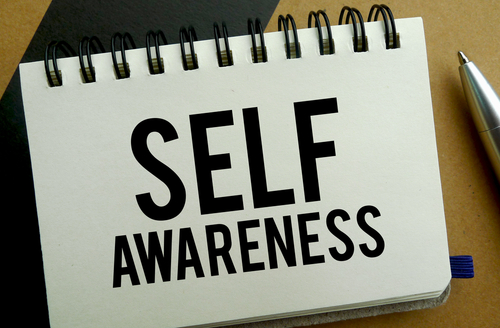“Out of your vulnerabilities will come your strength.” – Sigmund Freud
Self-Awareness is known as the, “Heart of Emotional Intelligence.” It is defined by Daniel Goleman as, “The ability to understand your own emotions and their effect on others.”
Have you ever stopped to think about how people really see you as an individual? Everyone has blind spots that represent behaviors we do not see or want to see in yourself. Self-Awareness helps you to recognize these behaviors and leverage your strengths while managing areas where you are not as strong.
If you take an objective look at who you are, you can probably think of several undesirable behaviors that have been pointed out to you by friends, family, or managers. These behaviors can be career limiting and prevent you from being successful at work and in your personal relationships. And, they can have an impact on your level of self-confidence.
Individuals who are very self-aware understand their strengths and areas of vulnerability. They are also aware of how they act in different situations. They are able to admit failure, and they are generally aware of how their emotions impact others. Stress, deadlines, and even personal situations can shift your behavior. That behavior can be irritating, distracting, or create stress for others with whom you interact.
Take, for example, a newly promoted manager who may be so self-absorbed in his/her recent success that they fail to see the impact they have on other people when they are under stress and start shouting in their office. The lack of self-awareness on the manager’s part makes “it all about the manager” and his/her success versus the team’s success and feelings.
According to Bradberry and Greaves in Emotional Intelligence 2.0, “Self-Awareness is so important for job performance that 83 percent of people high in self-awareness are top performers, and just 2 percent of bottom performers are high in self-awareness.”
Self-awareness is also helpful in recognizing areas of vulnerability that represent opportunities for development. It could be that you try to hide the fact that you are not comfortable speaking in front of people. Or, you may need to develop your numeric reasoning skills to open up additional job opportunities. It is also about understanding how you get your energy and how you make decisions.
The good news is that self-awareness can be developed through the gift of feedback from others and being open to feedback. Other ways to develop self-awareness include: assessments, coaching/mentoring, and learning how to manage your emotions.
Self-awareness is a valuable skill to learn and one that will not only enhance your relationship with others but it can open up new career opportunities. It reinforces respect for individuals and yourself. Your commitment to behavior changes and developing the areas where you are more challenged increases your self-confidence and makes you more prepared for new opportunities.
So, ask yourself the question, “Are you completely self-aware, or can you benefit from confronting your stress points and emotions?
Visit us at hrthought.com



